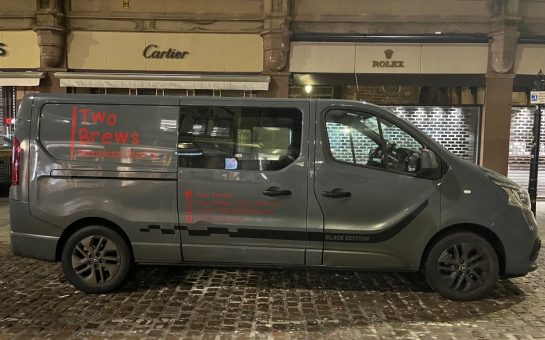‘Many more’ Japanese civilians would have beenkilled in the Second World War had nuclear weapons NOT been deployed by America, a University of Manchester lecturer has claimed.
An estimated 200,000 people died as a result of the nuclear bombs dropped on Hiroshima and Nagasaki in August 1945, either from the original blast or from the effects of radiation sickness.
Richard Wakeford, who is both a lecturer in population health and an expert on Hiroshima, has been working to summarise the studies into the side effects of the nuclear fallout and other forms of exposure.
Following the 70th anniversary of the Hiroshima attack, on August 6, MM caught up with Mr Wakeford to discuss how the build-up to the disastrous loss of life may have forecast even greater destruction had the war not have been ended so swiftly.
“It was undoubtedly an atrocity but this was a war full of atrocities,” he said.
“It’s a very complex situation – not a decision you’d want to make at all, it’s very, very difficult.
“If the war would have gone on I don’t think there is any doubt that many more Japanese civilians would have been killed by conventional bombing.
“If they hadn’t been used, the Americans would have absolutely flattened Japan anyway with conventional bombing before there was any invasion.
“It’s quite clear that the losses on both sides would have been tremendous had there been an invasion of the Japanese mainland.”
The professor said that while there may have been more destruction if the atomic bomb had not been set on the city, it is the still ongoing after effects of nuclear warfare that make the attacks so different.
“The fact you have radiation involved and all the rest of it, it is a psychological step forward from conventional warfare, as dreadful as that actually is,” he said.
“It’s that ratcheting upwards that really is why Hiroshima is treated so differently.
“How many people know about the fire-bombing of Tokyo in May 1945? Not many, because it was conventional bombing it’s a bit different to one bomb coming down.”
Since nuclear weapons were first thrust into the international consciousness 70 years ago, the threat of nuclear war has cast a pall over many conflicts since.
Never has that been worse than the Cold War, when the USA and the Soviet state came perilously close to launching an attack that may have heralded the end of the world as we know it.
And despite the recent rise in tensions between those two countries – and the conflicts in Ukraine and the Middle East – Mr Wakeford believes that there is still some way to go before the current situation becomes comparable to the dark days of the Cold War.
Despite this, he admits that it is hard to foresee a world where the threat of nuclear attack does not play a role in international relations – especially with countries such as North Korea pursuing nuclear programmes of their own.
“It is of course worrying at the moment as Russia has a large number of nuclear weapons, as does the USA of course,” he said.
“The instability that you see in Ukraine is very disconcerting.
“I don’t think we’ve plummeted to the worst depths of the Cold War yet but these sorts of developments are very worrying.
“It’s not as bad as the Cold War, when the USA and the USSR were seriously considering using nuclear weapons against each other.
“There were various times when people thought they could win a nuclear war, which is pretty ludicrous.
“The whole thing got out of hand tremendously in the Cold War with the number of nuclear weapons, and we’re not talking about weapons the scale of Hiroshima, we’re talking about thermos-nuclear weapons, over a thousand times greater than the weapon that was exploded over Hiroshima.
“With that going on it was quite clear that if nuclear war would have broken out during that period of time, it would have essentially wiped out the world.”
Whether or not the world will return to such a state of insecurity and instability all comes down to the level of trust between nuclear powers, according to Mr Wakeford.
He told MM: “Instability in the world has increased again and it all boils down to trust. Do the big nuclear powers trust each other?
“There was trust developing between the USA and Russia in the 1990’s but that seems to have gone again and you have these rogue states like North Korea developing nuclear weapons.
“So while this is going on it’s difficult to see how nuclear weapons can be abolished.
“I guess what you’ve got to do is to continue to work towards decreasing the numbers of nuclear weapons and increasing trust between nations but that’s easier said than done.”
With this in mind, Mr Wakeford believes it is crucial that the attacks on Hiroshima and Nagasaki are remembered, as they were in Manchester and across the world on Thursday.
“People always need to be reminded of the power of these weapons and what they can do,” he concluded.



